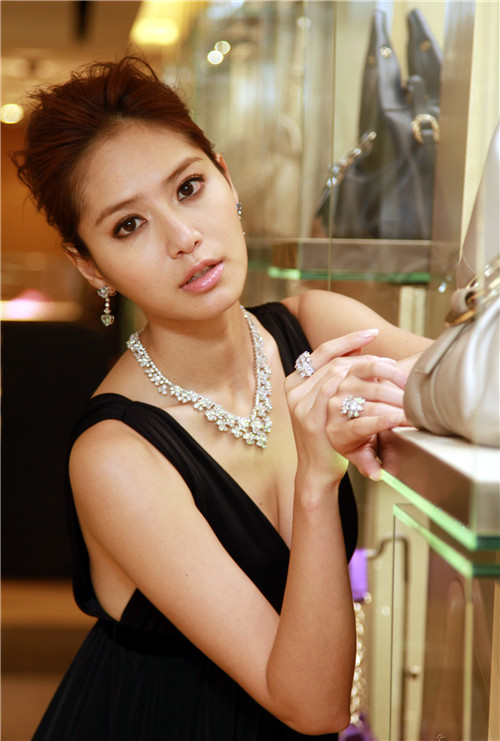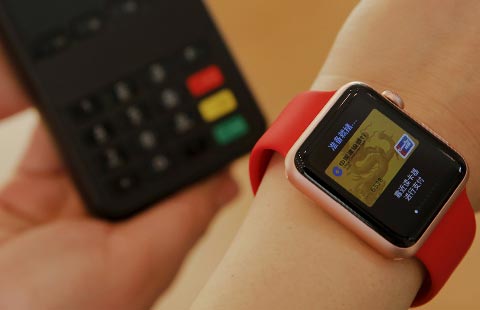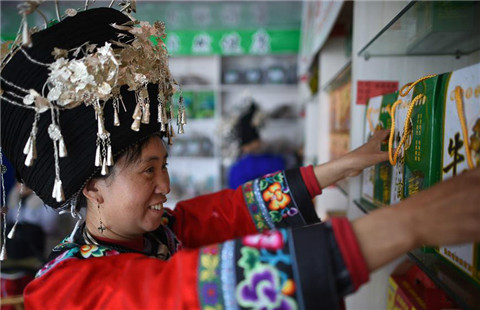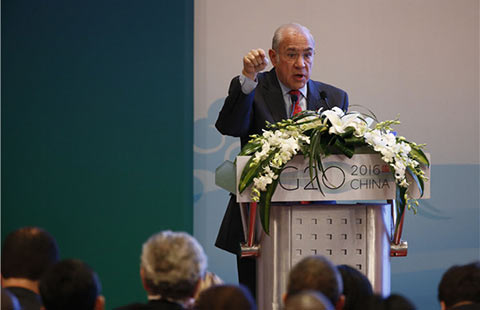Bulgari targets local shoppers with boutiques
(Agencies) Updated: 2016-02-29 07:45
 |
|
A model wears Bulgari's rings, neck-lace and earrings at a launch in Taipei.CHINA DAILY |
Bulgari is investing more than ever in China, aiming to tap in to the growing reluctance of Chinese shoppers to buy abroad due to security fears, stricter customs checks and a devaluation of its currency.
The world's third-largest watch and jewelry brand, part of luxury goods powerhouse LVMH, plans to open two boutiques in the Chinese mainland this year, Bulgari's CEO said, on top of three last year.
"If you see there is a potential swing with more mainland and less travel proportion, it's one more reason to speed up your mainland investments," Bulgari Chief Executive Jean-Christophe Babin told Reuters.
China's economy grew 6.9 percent last year, its slowest rate in 25 years, putting a damper on Chinese sales of everything from food to trips abroad. These foreign visits have often been a launch pad for purchases of luxury items, since they would avoid the hefty taxes levied in China.
But Babin said some Chinese consumers have become nervous about traveling to Europe and other places, due to the November attacks in Paris, where 130 people were killed.
"If we sell fewer watches to Chinese when they travel-Paris obviously because people are a bit scared-we see conversely a strong increase in our business in the Chinese mainland."
The shift to domestic purchases is also being fueled by the depreciation of the Chinese currency, which makes it more expensive to buy abroad, as well as stepped-up checks by Chinese customs on purchases made abroad.
Chinese tourists returning from overseas trips are becoming subject to stricter-than-ever customs controls on what they bring back, Babin said, adding that watches are subject to a 30 percent levy plus a penalty that is a multiple of that for anyone caught not declaring the purchase.
"People are quite scared to buy a $10,000 watch in Hong Kong, Zurich or Tokyo and eventually have to pay twice as much as they originally paid," Babin said.
Bulgari, with annual sales estimated between 1.5 and 2 billion euros, is No 3 behind Richemont's Cartier and Tiffany.
"More than ever, it makes a lot of sense for Bulgari to invest in China," said Babin.
Chinese consumers, whether shopping at home or abroad, make up more than 30 percent of sales of Swiss watches, and are notorious lovers of luxury goods in general. Babin declined to give specific sales figures for its divisions, which also include leather goods and hotels.
- Bulgari targets local shoppers with boutiques
- China's real estate land use plunges in 2015
- China's sharing economy worth $298b: report
- Traditional, emerging sectors' fortunes to diverge: report
- China's LeTV earnings soar 90.9% in 2015
- As bad loans increase, so do private debt-collection companies
- Brighter future seen for China's luxury goods industry
- Top 10 most innovative companies of 2015
















